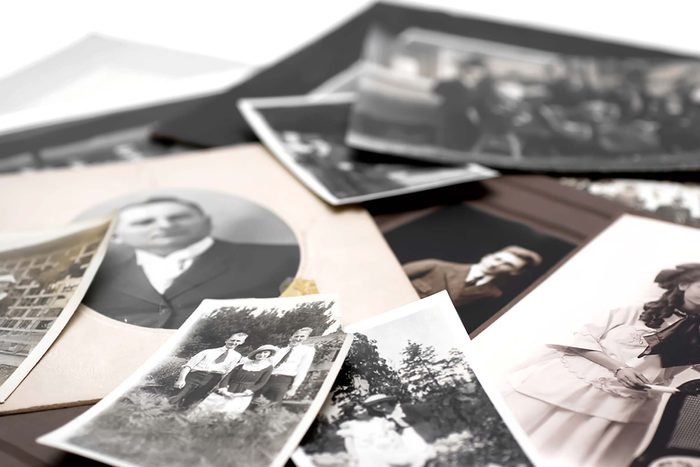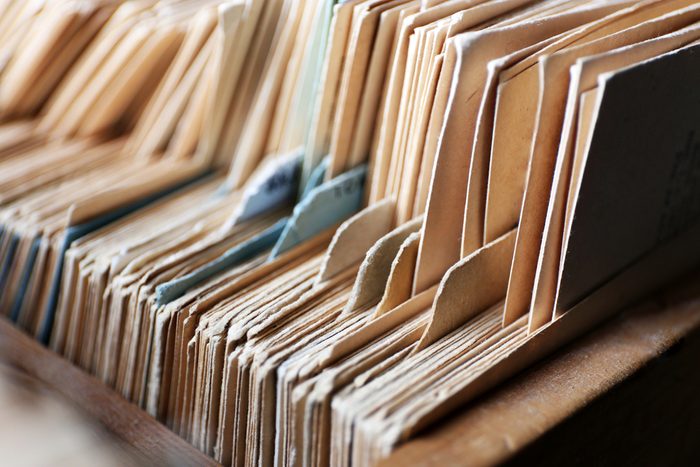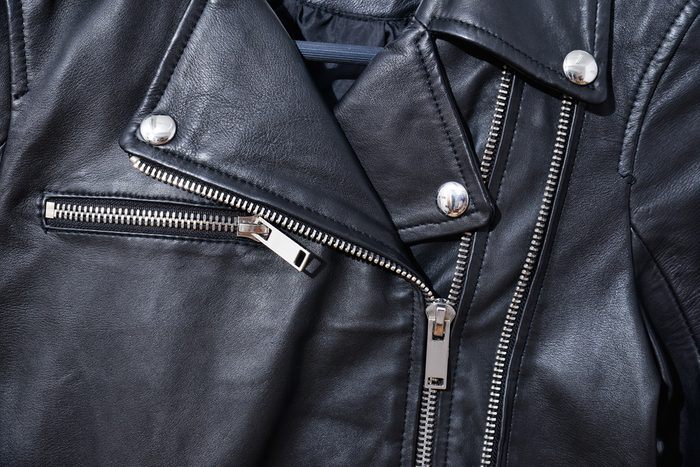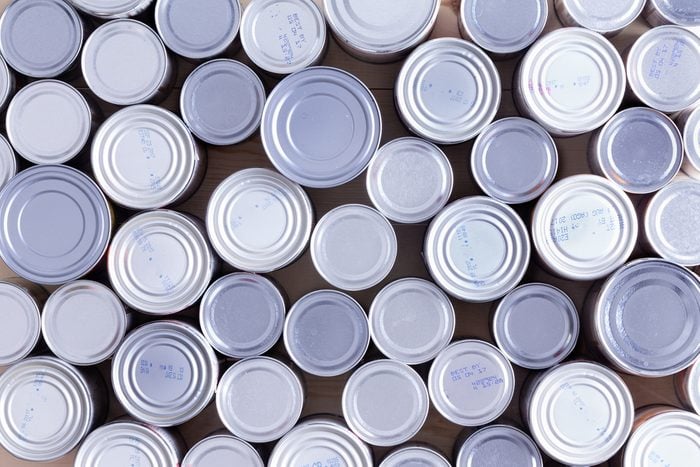
Attic storage
Even though your attic is supposed to be for storage, there are some items that can be damaged if they’re left in an unprotected and forgotten place in your house. Read on to find out what you shouldn’t be storing in your attic. To figure out how to neatly store the items elsewhere in your house, check out these organization ideas you wish you knew all along.

Family pictures
Special family pictures and portraits should never be stored in the attic. “It’s better to store them in a dry location like your bedroom,” says Suzy Cacic of Better Decorating Bible. “Big changes in temperature and humidity can potentially ruin your prints for good.” Find out 14 of the creepiest things home inspectors have found in homes (including attics).

Wood furniture
“Wood furniture will absorb heat and humidity potentially damaging wood finishes, glue, and the surface of the furniture,” says Becky Rapinchuk, founder of Clean Mama and author of Clean Mama’s Guide to a Healthy Home. Instead, wood furniture should be kept in a temperature-controlled area or storage unit. Just keep in mind these things you should never keep in a storage unit.

Important documents
“Birth and marriage certificates, diplomas, and other important documents need to be stored in a safe place like a filing cabinet in your office or fireproof safe,” says Cacic. They could be damaged and rendered unusable by mice, mold, heat fluctuations, and humidity if stored in your attic.

Batteries
Batteries, aerosol sprays, and bug repellent are just a few of the potentially flammable objects that need to be stored very carefully for an obvious reason: You don’t want your house catching on fire. “Temperature fluctuations can create a dangerous situation,” says Leslie Reichert, author of The Joy of Green Cleaning. Store batteries and other flammable objects in a designated pantry cabinet that’s away from stoves and fireplaces. You’ll be surprised by these 11 things you really shouldn’t be keeping in your bathroom.

Musical instruments
While it may be tempting to throw your old drum set or guitar in the attic in the hopes that you’ll find time to play them again, you might want to think twice. “Since temperatures are constantly changing in your attic and wood expands and contracts, storing guitars, violins, and other wooden musical instruments here can seriously damage them in the long run,” says Cacic. Instead, clear off a shelf in a closet where temperatures are more steady and dry.

Leather goods
Any and all leather products, including purses, shoes, jackets, and even sofas, should not be kept in the attic. “The heat and cold will remove the elasticity of the leather,” says Reichert, who advises storing these items in a closet, or stowing seasonal items at your local dry cleaner or temperature-controlled storage unit.

Books
Similar to important documents and family pictures, books should always be kept in a dry area. “Extreme heat and humidity fluctuations … can damage books,” says Rapinchuk. Let’s face it, no one wants to read a moldy book. Consider placing your old or already read books on a shelf or in a filing cabinet or donate them to your local library instead. Finding a new home for them will protect the pages from these 11 pests that could be hiding in your attic.

Electronics
You know how your iPhone shuts down when you accidentally leave it in your car? Now think about your old laptop, TV, or camera sitting in your attic without heat or AC. Most electronics can now be easily recycled, but if you have one or two that you’re not quite ready to get rid of, store them in an even-temperature room that’s free of humidity and heat, Reicher says.

Canned goods
It can be tempting to use your attic as a makeshift pantry for that pallet of tomato sauce you picked up on your latest Costco run, but don’t. “The heat and cold fluctuations of your attic can damage the vacuum in the can, and you never want to eat food in a can with a popped top,” says Reichert. “It’s better to store canned goods in a temperature controlled pantry that’s cool, dark and dry.”

Clothing
Finding room for off-season or sentimental clothing can be a challenge, especially if you have minimal closet space. But whatever you do, do not put your clothes in the attic. “If you don’t like mold and that musty smell growing on your clothes, better not store them in the attic,” says Cacic. “Instead, place them in vacuum-sealed bags and slip them under your bed for easy storage.” Next, find out about the things you shouldn’t be keeping in your bedroom.